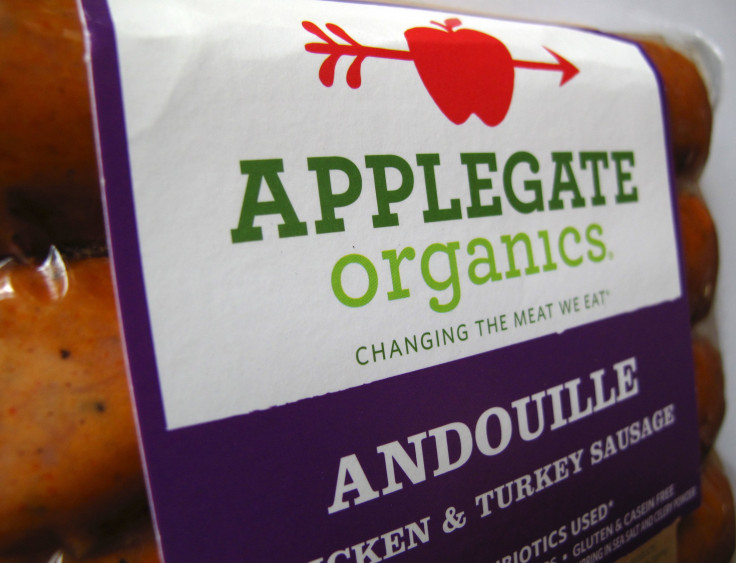Sales From Organic US Farms Reached $5.5B Last Year: USDA

By Tom Polansek
Sales from organic U.S. farms reached $5.5 billion last year, a 72 percent increase from 2008, the U.S. Agriculture Department said in a report on Thursday that highlighted the consumer trend toward such products.
The USDA data, compiled through farmer surveys, showed that milk was the top organic commodity in 2014 with sales of about $1.1 billion. Sales of organic eggs, which are laid by hens raised without cages, totaled $420 million.
Demand for organic foods, from fruits and vegetables to meat and grains, has risen steadily in the past decade as shoppers have become more concerned about genetically modified products, as well as chemicals used in the food chain.
"We need a higher rate of growth in order to get close to meeting the demand," Laura Batcha, chief of the Organic Trade Association, said after reviewing the sales data.
Organic agriculture uses methods that avoid most synthetic materials, such as pesticides and antibiotics.
Sales are geographically concentrated, with 10 states accounting for 78 percent of business in 2014, according to the USDA. California alone represented 41 percent of sales, according to the USDA.
Nationwide, the total number of organic farms dropped by 3 percent to 14,093 last year from 14,540 in 2008, according to the USDA. The decline came among farms that are exempt from government certification because they earn less than $5,000 annually from organic sales.
The number of larger farms that are certified as organic rose 15 percent from 2008 to 12,634, the USDA said.
Differences in survey methods from 2008 to 2014 may have affected the count of smaller farms, said Troy Joshua, chief of the environmental economics and demographics branch of the USDA's National Agricultural Statistics Service. Also, some smaller farms have expanded into bigger, certified operations, he said.
The USDA said 39 percent of the organic farmers surveyed, or about 5,300 producers, said they planned to increase production in the next five years.
Sales at natural and organic retailers rose 9 percent in the past year, compared with a 1.3 percent gain at supermarket chains and other conventional retailers, according to data from Spins, a market research firm that tracks data from store scanners.
In May, Spam maker Hormel Foods Corp said it would buy organic meat processor Applegate Farms for $775 million.
Last year, General Mills Inc, the maker of Cheerios cereal, said it would acquire organic food producer Annie's Inc for about $820 million.
(Reporting by Tom Polansek; Editing by Steve Orlofsky)
© Copyright Thomson Reuters 2024. All rights reserved.




















